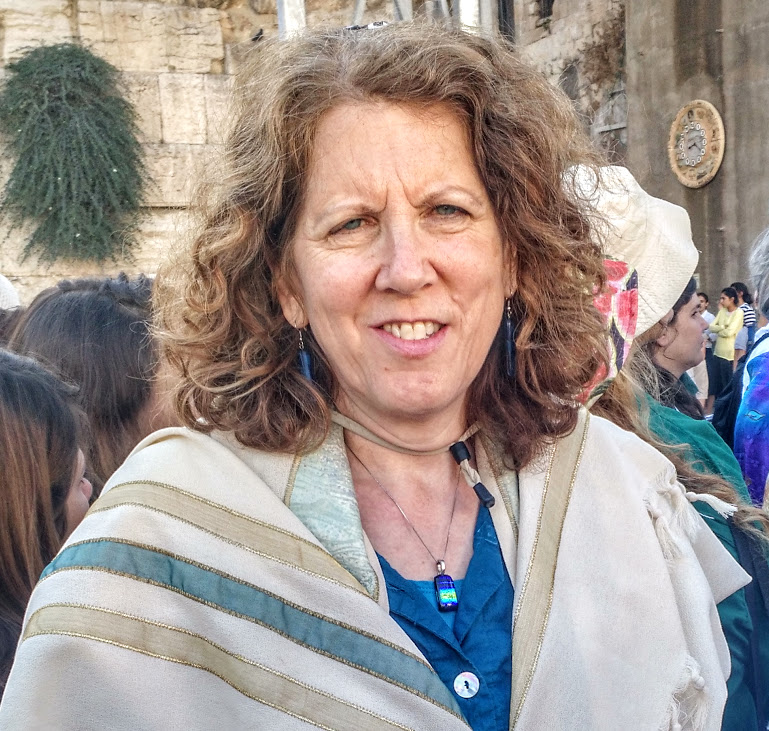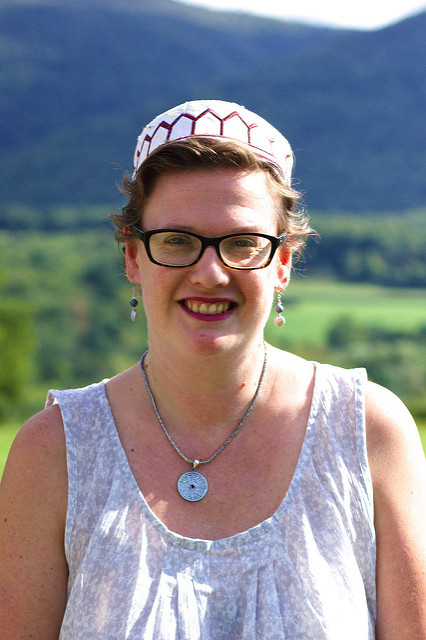D'var Torah
Slavery, Then and Now
In this moving sermon, Rabbi Gordon Tucker discusses the problem of modern slavery and describes his experience visiting sites from the African slave trade. SLAVERY THEN AND NOW Rabbi Gordon Tucker The Torah, in Leviticus 25:55, has God saying “The children of Israel are My servants”, and the rabbinic tradition afterwards added the following...
more

Where Have All The Flowers Gone
“Where have all the flowers gone.” For a host of reasons, I hate loving this song: especially at this time of year. I look forward to loving this song, when it will no longer speak to me. This song is about the cycle of life and death. Our life cycles are a normal part of...
more

Of Migrants and Midwives
While we know the names of Shifra and Puah, the Egyptian midwives who disobeyed Pharaoh and saved Jewish baby boys, in Parashat VaYislach we meet an unnamed midwife who is present for the precarious birth of Benjamin. According to Genesis 35:16-19, while our migrant ancestors were on an arduous journey en route from Beth El...
more

“Satiety Leads to Rebellion”
The problem with taking my children to Disney World is that upon returning home, they kvetch about wanting to return to the Happiest Place on Earth. The thousands of junky Disney calories and hundreds of amusements lead my children and, I must ruefully confess, me, to “grow fat and kick”,” in the words of the...
more

Atem Nitzavim: Standing Together Against Hunger
Imagine the scene. Groups of men, from tribal leaders to woodchoppers and water-drawers, standing in the same place. Elders interspersed with officials and women with babies on their hips. Children running in and out, weaving between the people, even the stranger within the camp, all gathered together on this day. Atem Nitzavim. You stand this...
more

Dispossession in our text and in our world
Jewish stars spray-painted by settlers onto the deserted shops left by Palestinians after they were expelled from Shuhada Street. Bullet holes shot by settlers into the water tanks of Palestinians, who already have erratic and dramatically insufficient water supplies. The palimpsest of “Free Palestine” where settlers have spray painted bold blue stars over the green...
more

The Heel, the Heart and the Binary
What does Moses’ closing address to the Children of Israel have to do with gender? It’s no secret that Torah is gender specific. The Hebrew language assumes a gender binary. Rabbinic Judaism accorded the greatest amount of esteem and religious status to those whom we often refer to today as cis-gendered men – individuals who...
more

Re’eh: See Immokalee with your own eyes and you’ll understand
See. Re’eh. Much of Sefer Devarim instructs us to listen—Shma. Listening is one important way that people understand and empathize with the stories of others. When we hear or read these from afar, we feel great empathy and outrage. But in our portion, the mitzvot we are called to fulfill require that we see life’s...
more

Pursue Justice So That You May Truly Live
This week’s Torah portion contains one of the most famous justice-related verses in Torah: “צֶ֥דֶק צֶ֖דֶק תִּרְדֹּ֑ף, / tzedek tzedek tirdof” — “Justice, justice shall you pursue!” Although the parsha begins with the injunction to establish judges, this instruction — to pursue justice — doesn’t seem to be aimed solely at those whose job it...
more

Envisioning a Just Society
In parshat Ki Tetze we encounter the case of the ben sorer u’moreh, the wayward and rebellious son. We read in Devarim 21:18-21 that if a child does not obey his mother and father they should bring him out to the gates of the city before a council of elders, publicly declare him a glutton...
more

